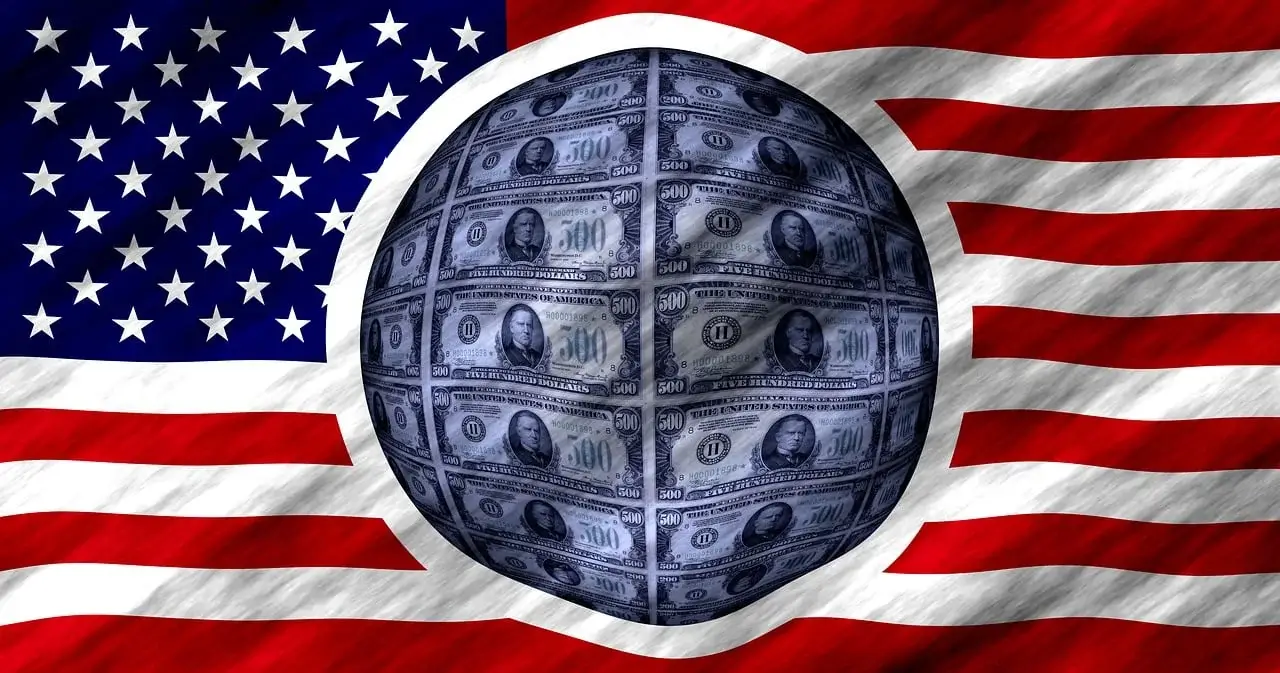March Inflation Slows, but Trade Tensions Threaten Rebound
10.04.2025 16:30 2 min. read Alexander Stefanov
Inflation appeared to cool in March, offering investors a brief sense of relief—though that calm may not last.
Fresh data showed consumer prices rising at a slower pace, but renewed trade tensions sparked by President Trump’s sweeping tariff hikes are now threatening to reverse that trend.
According to the Bureau of Labor Statistics, the Consumer Price Index rose 2.4% over the past year, down from 2.8% in February and slightly below economist forecasts. On a monthly basis, prices actually dipped by 0.1%, marking the first monthly decline since mid-2020.
Stripping out food and energy costs, core prices climbed just 0.1% for the month—another slowdown from February’s 0.2%. Year over year, core inflation came in at 2.8%, the lowest it’s been in four years.
This marked the second consecutive month of cooling inflation on both headline and core levels, a trend that had been building optimism among investors and economists alike. But that optimism is being challenged by a sudden and dramatic turn in U.S. trade policy.
Just as markets were buoyed by news of a 90-day suspension on many reciprocal tariffs, Trump escalated trade pressure on China by raising import duties to 125%, citing continued disagreements. Meanwhile, existing 10% baseline tariffs remain in effect for most nations, and specialized levies on steel, autos, and other key industries are still in place. Mexico and Canada also face targeted trade penalties linked to other policy disputes.
Economists warn that these tariffs could reignite inflation and complicate the Federal Reserve’s strategy. Fed Chair Jerome Powell reiterated last week that the central bank is holding off on any immediate changes to interest rates, citing the uncertain path ahead. With trade policy in flux and inflation potentially poised to rebound, the Fed remains in wait-and-see mode.
-
1
Robert Kiyosaki Predicts 2025 “Super-Crash,” Urges Hoarding Gold, Silver, and Bitcoin
23.06.2025 13:31 2 min. read -
2
Billionaire Slams Meme Stock Hype and Sounds Alarm on U.S. Fiscal Health
15.06.2025 18:00 2 min. read -
3
Billionaire Investor Sees Dollar Crash If Key Support Breaks
18.06.2025 15:00 1 min. read -
4
Nassim Taleb Says Global Trust Is Shifting from the Dollar to Gold
22.06.2025 17:00 1 min. read -
5
Geopolitical Shockwaves Hit Ethereum Hard While Bitcoin Stays Resilient
22.06.2025 16:21 1 min. read
Robert Kiyosaki Predicts When The Price of Silver Will Explode
Robert Kiyosaki, author of Rich Dad Poor Dad, has issued a bold prediction on silver, calling it the “best asymmetric buy” currently available.
U.S. PCE Inflation Rises for First Time Since February, Fed Rate Cut Likely Delayed
Fresh data on Personal Consumption Expenditures (PCE) — the Federal Reserve’s preferred inflation gauge — shows inflation ticked higher in May, potentially delaying the long-awaited Fed rate cut into September or later.
Trump Targets Powell as Fed Holds Rates: Who Could Replace Him?
Federal Reserve Chair Jerome Powell is once again under fire, this time facing renewed criticism from Donald Trump over the Fed’s decision to hold interest rates steady in June.
U.S. National Debt Surge Could Trigger a Major Crisis, Says Ray Dalio
Billionaire investor Ray Dalio has sounded the alarm over America’s soaring national debt, warning of a looming economic crisis if no action is taken.
-
1
Robert Kiyosaki Predicts 2025 “Super-Crash,” Urges Hoarding Gold, Silver, and Bitcoin
23.06.2025 13:31 2 min. read -
2
Billionaire Slams Meme Stock Hype and Sounds Alarm on U.S. Fiscal Health
15.06.2025 18:00 2 min. read -
3
Billionaire Investor Sees Dollar Crash If Key Support Breaks
18.06.2025 15:00 1 min. read -
4
Nassim Taleb Says Global Trust Is Shifting from the Dollar to Gold
22.06.2025 17:00 1 min. read -
5
Geopolitical Shockwaves Hit Ethereum Hard While Bitcoin Stays Resilient
22.06.2025 16:21 1 min. read


